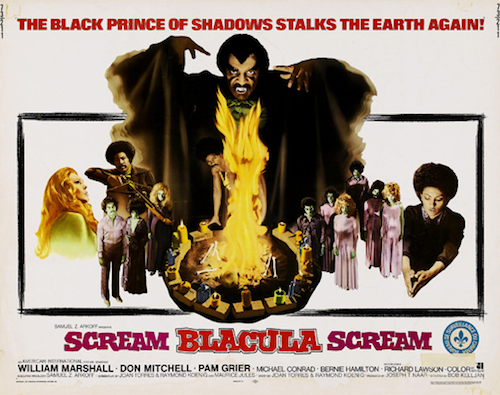A mere 10 days after Comcast agreed to buy Time-Warner Cable, the cable/internet giant has announced a multimillion-dollar deal with Netflix. Here’s how it works: Netflix pays Comcast several million dollars each year, and the 25% drop in streaming speed that has plagued Netflix subscribers who get their internet from Comcast will go away. It’s probably a coincidence that this unprecedented deal comes three months after a circuit court judge struck down the FCC’s authority to enforce net neutrality. Welcome to the new internet. Netflix, which accounts for as much of 30% of total internet traffic during peak hours, now has to pay to play.
It is unclear whether this deal violates net neutrality in the strictest sense of the term, partly because the authors of the Times article insist on euphemizing every technical aspect of it. Netflix and Comcast have entered into what is called a “paid peering” deal, which the Times describes as “typically struck between companies that manage the plumbing of the Internet,” to give Netflix “its own on ramp to Comcast customers.” Similarly, previous delays in Netflix service were, according to Comcast as mediated through the Times, a consequence of “middlemen trying to shove too much data through too small a pipe.”
Maybe the readers of this story about a paid peering deal between an ISP and a streaming content provider are savvy enough to understand the internet as something other than a highway that goes through pipes, but whatever. The point is that this agreement increasing Netflix’s speed on one particular ISP’s network in exchange for money is somehow not a violation of net neutrality. Quote:
Netflix will now essentially have its own on ramp to Comcast customers. That is different from paying to be moved through the pipes more quickly, a deal known as “paid prioritization” that is generally seen as a net-neutrality violation.
The average internet user can be forgiven for not quite seeing the difference. Fact: if its acquisition of Time-Warner Cable goes through, Comcast will be the service provider for 40% of internet users. Just as those users could not stream Netflix content at advertised speeds for the past several months—for reasons Comcast won’t announce and the Times won’t explain—now the unspecified problem has gone away. All it took was for Netflix to give Comcast several million dollars, annually.
It’s not a violation of net neutrality, even though it happened right after the FEC stopped enforcing net neutrality, Comcast got a plurality share of the market, and Netflix experienced significant, ISP-specific delays. Call it what you will. For the first time, a content provider has paid an ISP to let its content stream at normal speeds—not faster speeds, but the speed it enjoyed before the last three months’ mysterious slowdown.
Is that good for customers? Kind of, in the sense that they will once again get the Netflix content they paid for at the speeds for which they’re paying Comcast. It’s hard to believe, though, that this arbitrary new multimillion-dollar expense in Netflix’s business model will not get passed on to subscribers.
Nor is it likely that they can change ISPs in protest. No neighborhood in America has more than one cable provider to choose from, which means no Comcast customer can get his or her cable internet anywhere else. They can downgrade to DSL, but the kind of customer who subscribes to Netflix almost certainly does not want to lose that much bandwidth.
Essentially, Comcast is charging Netflix a monopoly tax. They provide internet to a large portion of Netflix’s subscriber base, and so they will be charging Netflix millions of dollars a year because they can. It’s the same reason they will be charging you your full monthly rate even when your internet goes out, and the same reason they will come fix it between 8am and 8pm nine days from now. Because you can’t buy what they’re selling from anyone else.
Here’s a fun thing to imagine: tomorrow, the FCC announces that it will be charging Netflix a bandwidth usage tax that amounts to millions of dollars a year, and if Netflix doesn’t pay, their streaming speeds will be reduced by 25%. I submit that if the federal government did that, at least one political party would go insane. Everyone would say it trampled innovation and unfairly burdened customers. It would be an abuse of power.
Because that power comes from a private monopoly, though, what Comcast is doing is apparently okay. It doesn’t hurt that telecom is the second-largest lobby in the United States. 2014 is the year they start to tighten the screws, and I bet they are right: we’ll pay, because we can’t get the internet from anyone else.
Update: My brother sent me this article from the Washington Post, which explains the technical basis of the Netflix/Comcast deal much more cogently.





This is one of those situations in which I agree with your broader argument (net neutrality: good. Violations of net neutrality: bad. Monopolies: also bad), but some of your points are flawed.
First, writing that no neighborhood has two cable internet providers is technically true, but intellectually dishonest. Some neighborhoods have cable, fiber optic and satellite options. I don’t think there are enough neighborhoods with options to really weaken your argument, which is why I’m surprised you made it. I’m pretty sure I plagiarized the phrase “technically true, but intellectually dishonest” from like 30 different Combat! Posts.
Second, it is unreasonable to compare Comcast charging fees to taxes. Comcast is providing the bandwith; the FCC only regulates it. I’m not saying that the ability to impose these fees it good, merely that it is fundamentally different to a tax by the FCC.